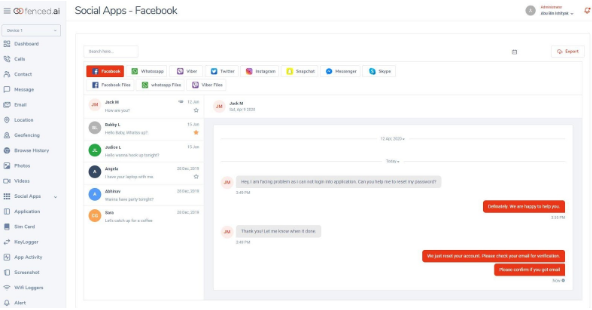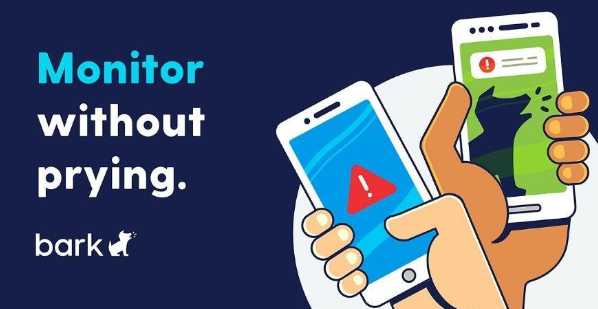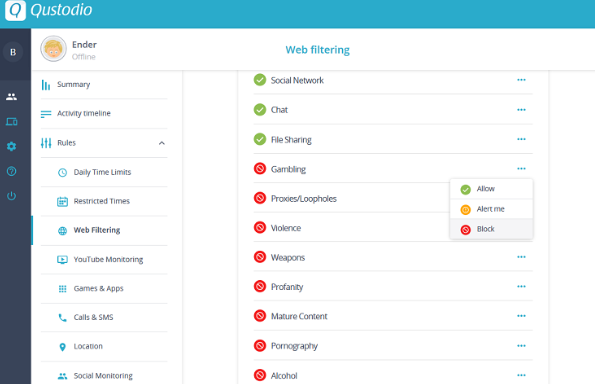Keep Children Safe Online – Top Tips for Parents
Smartphones are like companions in everyone’s lives – pretty much everyone has a phone in their pocket and tends to spend most of the time using phones it seems. Children are starting to use digital devices from a very young age and this brings a new set of challenges for every parent. As I am sure you will agree, parental concerns for how to keep children safe online is stronger than ever.
The internet can do wonders for children if utilised properly for study and as a general source of entertainment. There’s no doubt that the internet can bring joy to children by connecting with friends and family all across the globe and it can be a great place to hang out and relax.
But with the positive benefits of children using the internet, there are of course inevitable risks and threats associated with it too. Internet threats such as cyberbullying, online predators and access to viewing inappropriate content have increased massively over the years. Nearly 60% of teenagers have received an unknown e-mail message or instant messages and half of them have replied as well. 1 in 4 children comes to unwanted pornography during their screentime on the internet. 1 in 5 have been sexually solicited on the internet. The statistics in terms of keeping children safe online keep rolling…
Due to the growing use of the internet and the web, internet safety is a major concern for every parent and we should always be on the lookout for ways to keep our children safe online.
Here are 11 safety tips for keeping children safe online you can put in place to ensure your children’s safety and wellbeing and to help you to protect them from inappropriate online content.
1. Have an open conversation with your child about their online activities
Children are learning to use internet-connected devices at a very young age – it is becoming second nature to them at home and at school. One thing you obviously can’t do is keep an eye on them every time they are using the internet. But you can always talk to them about what they are reading and watching on the internet. Talk about their online browsing activities and introduce them to cyber-safety.
In real life, we teach our children not to talk and accept sweets from strangers and how things can go wrong. In the same way, teach them the same approach for the online world. Ask them to be open to you about who they communicate with online and to make sure they know who it is on the other side of the screen whenever possible.
Listen to what your kids have to say and reach an agreement on what is good for your family. Don’t force your child on anything; make him understand what is right and what is not. Remember they can always use the internet from the devices outside the home so you will have to prepare them for everything they can see or face in near future.
2. Keep the screens and devices in a common area of the house
You have to make sure that your kids are not allowed to take laptops and tablets in their bedrooms. This isn’t a medieval form of privacy invasion and you will not be spying on their every move, but try and make a common time for family internet use. Make it clear that everyone should be able to discuss what they are looking at on the internet openly and ensuring that internet usage happens in an open part of your home will help you keep yourself up to date on what your children do online and allow you to monitor who they are talking to.
For younger children, you can keep an eye on their browsing history after they have been online or use cell tracking apps for mobiles. This can be difficult if they have grown older as they can clear the history so it’s essential to teach and talk about online safety transparently from a younger age.
3. Know your parental controls to keep children safe online
Your child will ‘Google’ about anything on the internet. And, sometimes he will have not-so-innocent search results. In such cases, it’s good to know how parental controls work. You can use parental controls to see your child’s online activities and you can also restrict them from visiting a particular site. You can learn to use ‘restrict’ options by web browsers or internet service providers.
You can also use the parental control apps or the SafeSearch filter feature of google. This feature will block sites with sexual content and whilst it may not be 100% accurate, it can help prevent your child from viewing and accessing sexual content online.
Parental control apps help you to monitor your child’s phone activities without them knowing and can help you keep your children safe from internet predators. It will let you control your child’s access to adult and violent content and you can access information from their smartphones using these apps as well – this data can include your child’s current location, photos, and the messages they exchange.
4. Teach your children what they should keep private
Being a part of digital society makes us vulnerable to the posed threats of the internet. Most applications on the internet these days ask you to turn on your location and networks/apps have geo-tagging features that make your whereabouts public. This is obviously a very real concern for when our children access the internet as within the click of a button their physical presence can be revealed to predators. You can turn off the location by going into your phone settings or respective app settings and it is highly recommended you check this immediately on your child’s smart device.
Online scams can make your private information go public and can exploit it in many ways. These scams can often be made to look incredibly realistic, from reputable brands that you and our child might easily recognise and believe to be official. As a parent, you have to make sure your child learns where and how much information they are sharing and who it is with. Make sure they always know that you are there for them if they are ever unsure or if something does go wrong.
5. Know who your child’s friends with online
As adults, we know some people are not the same as those who say they are on the internet. It can be an alarming situation for our children if they strike up a friendship with someone they think is a child but who turns out to be an adult with nefarious intentions.
Make sure you are aware of your child’s online, as well as real-life, friends. You will have a good awareness of who is in your child’s social circle and sometimes this comfort zone will help your child’s friend to reach out to you if your child ever finds themselves in trouble.
6. Be “Share Aware”
To protect your privacy, you must be aware of what you share online – once the information is online, it can be exploited and manipulated in many ways. As a parent, you must teach your child to be cautious and thoughtful before they post anything on their social media profiles. They must be aware of the negative consequences of personal information and images being made public.
Encourage your children to cross-check with any other older members of the family before they post it. They may not know how one can manipulate photos, and trade on different sites for money. So try to make sure you have put the words of “share aware” into their minds to make them aware of the consequences of sharing their lives online.
7. Keep children safe by keeping track of online time
You can always set rules about what your children can do and what they can’t on the internet. Likewise, you can set time limits on their device use as it’s important for a parent to keep track of their child’s online time to help them avoid developing bad habits and becoming hooked on their devices as they grow.
You can reach non-negotiable time limits with your child to stay online and you can always switch off the Wi-Fi access when the time is over. Nowadays, Timeout features are also a great help. This feature will automatically block your child’s access to the app if he exceeds the usage time limit. This will ultimately help your child to stay focused and will also prevent them from becoming addicted to their smartphone.
Excessive screen time causes eye problems, bad body posture, anxiety, and depression – we as adults have all felt the aches and pains of being hunched over a screen for too long. Make your child aware of the health issues so that they understand the reasoning behind your decisions to curb screen time.
8. Know your children’s passwords
Rather than allowing your child to set up their own email accounts or IDs, you can provide them with your email and password to use, or set up an account which you can monitor in the same way as your own emails. By doing this, you will get notified of what they are signing up for and where as soon as it happens.
If they insist on having their own accounts then make it the non-negotiable rule that you have their passwords and ensure that you check you can access the accounts frequently – they may try to change the passwords without informing you!
9. Watch your kid’s behavior to notice a change
If your child is doing something online that they know they should not be, there may be some behavioural changes that you observe. For example, the child may try to use their gadgets in a private corner of the house. They may spend less time with the family and appear to be more in their “own world”. There will of course be other personality changes as well that could be a sign that something in your child’s online life is not quite right, so watch and study your kid’s behavior to notice any sign of trouble.
Sexual predators may send your kids physical letters and gifts to seduce them. They can give such things to your kids anywhere, be it their school, or playground, or park they visit. In such times you have to stay alert and ask your kids about their new toys or accessories they bring home. Do not be afraid to challenge them where these items have come from but always ensure that your child knows that you are the safe adult and that they can trust you to help them if they have found themselves in a dangerous situation.
10. Be social network savvy
Educate yourself with the practical knowledge of social networking sites so that you can give the best advice to your children about it. Find out the working mechanism and the features of the apps that your children are using. Explore the safety ways yourself first so that you can talk about them to your children. Tell them it doesn’t need to be you to whom they can talk when they are worried, they can talk to any trusted adult that they know in real life (grandparents, aunts, uncles, teachers etc) about any online problems they are facing.
Make sure your child knows how to block or report an inappropriate person or content on the apps they are using and that they know to keep their information private and filter out the search results. Also, help them know and explore the privacy settings to make sure everything is as private as one can keep.
11. Lead by example to keep children safe online
You are your children’s role model. Parents are the children’s first teachers and they watch and learn from you from their first breath. Children want to be like their parents and do what their parents are doing. That means, whatever you do will impact your children as well.
Make sure you always model the positive online behavior that you would want your children to use. They are likely to follow in your footsteps if they see you being cautious online. If they see you limiting your screen time to a minimum they will be happier doing the same as well.
How can you use parental controls to keep your children safe online?
Most devices and applications come with parental control settings that allow you to monitor your kid’s activities online. You can limit what they can view and what content they can access using parental control apps. The 3 most popular and widely used parental control apps are described for your convenience.
-
fenced.ai
fenced.ai is a widely used and trusted parental control app. It is one of the best parental control apps to keep children safe with a bunch of features that keep your worries at rest. It helps you monitor your kid’s online and offline activities on their phone. You can monitor their offline activities such as phone calls, SMS, their photos, and videos on phone storage.

With fenced.ai you can monitor their online activities on different social media platforms such as Facebook, Viber, Whatsapp, Snapchat, and Skype. It helps you keep an eye on who they are exchanging messages with. You can also see the calls made and the details of all the places they have been throughout the day. fenced.ai allows you to use easy monitoring features to see who they have private and group chats with. You can identify the dangers and keep them away with the easy-to-use fenced.ai software.
-
Bark.us
Bark.us is another parental control application that allows you to monitor your kid’s online activities without being invasive. Its main feature is an alert system but has also been criticized for unwanted and unnecessary alert messages. It supports monitoring of 30+ different social networking sites to keep the dangers away and maintain online safety.

Bark.us has an easy interface that doesn’t burden parents with complex usage. It saves your time and maintains your peace of mind. It helps you by protecting and managing your child’s online safety. Bark.us helps you monitor your kid’s conversation and content they share on their social networking sites.
Qustodio
Qustodio is another popular parental control software with a monitoring feature. One feature that is different from other parental control apps is the Panic button. This button comes into use when children are in trouble. They can send a panic alert as soon as they sense the trouble. This sends the current location of the kid which helps in easy tracking of them.

Along with the panic button feature, it gives you a 3-day trial period to make yourself comfortable with the features before you can purchase it. This parental control app helps manage the screen time limit and also filters out the content they can see. It helps you to keep your children safe from online bullying and other dangers.
In the end…
You don’t want to instill fear into your child’s mind and you certainly don’t want to keep them away from the benefits of the internet. Benefits can be educational, social, entertaining, and many more and ultimately you don’t want to prevent them from the positives of the internet, particularly as they grow up in this digital world. You simply want to give them the best knowledge they need when they are online to avoid any possible dangers.
You need to focus on teaching your kids safe and responsible online behaviour and teaching about the potential risks of the internet will ensure possible dangers are noticed and avoided. Always encourage open communication about who they come across on the internet – this way you can know and warn your kids about someone who seems suspicious to you.
Discuss the dangers of the web with your child and explain to them about the passwords that protect them from identity theft. They should never share them with even their best friend. Get yourself involved in your child’s online activities and take an interest in their online life in order to normalise it for them so they know who to come to if things do become dangerous or inappropriate.


some great tips, a very useful blog post